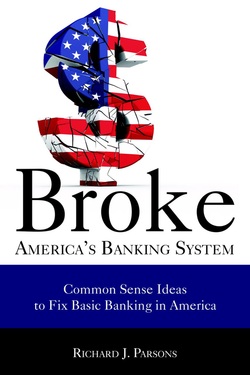 by National Debt Relief As a new banker, you may not, as yet, have encountered a deal involving a company in bankruptcy. But considering that investment bankers often play a role in offering advice and financing to bankrupt companies, you most likely will be involved with one soon and it's good to follow some tips for dealing with the situation. Chapter 11 cases Companies that are in the midst of trying to reorganize under bankruptcy protection will probably need a source of funding to cover costs of payroll, inventory and operations. This kind of financing is called debtor in possession financing. Often, a major creditor will step in to offer debtor in possession financing on the premise that it will strengthen its chance to get its original investment back. However, in cases where no such creditor steps forward, it provides an opportunity for an investment bank to either set up the financing or provide it itself. Although entities providing debtor in possession financing don't enjoy the same protection as secured creditors, they do gain a position ahead of unsecured creditors. They can also look for ways to gain security by getting into a junior lien position or attaching senior liens to assets that aren`t currently pledged as collateral. Although there is some risk involved in doing debtor in possession financing, it does offer some security and can be a lucrative endeavor. Chapter 7 cases When a company faces liquidation, it may still need financing to get through the bankruptcy process, for instances such as a bankruptcy auction or finding a bidder to buy the company or its assets. Again, an investment bank can play a role in setting up this financing. In this case, the financing will likely be secured and you will have a good chance of protecting your principal and also earning a reasonable return on the money lent. Lending post-bankruptcy A company that has previously declared bankruptcy or that has just emerged from bankruptcy can have a hard time obtaining financing from traditional sources. That can present an opportunity. If you do your homework and find a company that seems financially sound and with good business products, your investment bank may be able to lend the business money at higher than market rates. You also may be able to arrange funding through another source and get fees for doing so. State laws When dealing with a company in a bankruptcy situation, make sure you take heed of any country-specific or state-specific laws that may apply. In addition to the federal bankruptcy code, some states in the US have their own laws regarding business bankruptcies and funding of companies in bankruptcy, so you have to be aware of those to make sure you don't take any actions that run foul of those laws. Having more information about bankruptcy, either to help your customer or for your own education, is a good thing. National Debt Relief has a wealth of information about ways to avoid bankruptcy as well as help available to those who have already filed.
1 Comment
|
Girl Banker®I created my investment banking blog in 2012 as soon as I resigned from i-banking & published my book, To Become An Investment Banker.
Initially published at girlbanker.com, all posts were later subsumed into my personal website under katsonga.com/GirlBanker. With 7 years of front office i-banking experience from Goldman Sachs and HSBC, in both classic IBD (corporate finance) and Derivatives (DCM / FICC), the aim of GirlBanker.com was to make it as straight-forward as possible to get into a top tier investment bank. I'm also a CFA survivor having passed all three levels on the first attempt within 18 months - the shortest time possible. Categories
All
Archives
August 2017
|
Heather Katsonga-Woodward, a massive personal finance fanatic.
** All views expressed are my own and not those of any employer, past or present. ** Please get professional advice before re-arranging your personal finances.

 RSS Feed
RSS Feed





